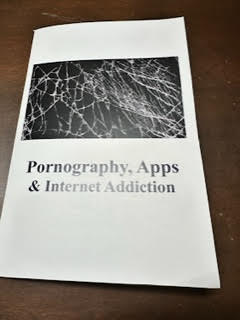Summary of SCA’s ISO 2023 Conference
The International Service Organization of Sexual Compulsives Anonymous held its annual conference this past weekend: April 21st through 23rd, 2023.
Below are some of the conference’s highlights, which took place on Zoom.
Delegates representing 73 meetings attended the conference or voted by proxy. We also heard group reports from most domestic groups and scattered international meetings, particularly SCA in Japan.
Recovery book sales (print & e-book)
Since the ISO released the new Recovery Book (print version) on November 17, 2021, sales have been steady. Through March 31, 2023, the ISO has sold 450 copies of the print edition and 213 e-Book versions through Amazon Kindle, Apple, and Google.
Decisions made and Actions taken
An ISO By-Laws Amendment was unanimously approved: That the Executive Committee members, excluding the Outside (non-member) Director, being officers of the corporation who represent SCA in dealings with active sexual compulsives and the public, are required to have at least two (2) years of SCA membership and one (1) year of sobriety on their Sexual Recovery Plan.
Fiduciary motions:
ISO approved a revised budget for 2023 and (2) set aside capital funds to print versions of the Porn, Apps & Internet Addiction chapter of our Recovery Book and the Step Workbook (see Inreach motion below).
Outreach motions:
ISO approved a motion to sell the SCA Recovery Book to bookstores at the same 40 % discount available to SCA meetings. Outreach is expected to contact such bookstores, informing them about the book and asking them to consider offering it for public sale.
(a) ISO will provide the Recovery Book and other SCA literature and information to jails, prisons, recovery centers, and judicial organizations addressing sexual addiction. These institutions will also be offered the opportunity to purchase our literature at the 40 % meeting discount rate.
(b) Budgeted $1,000 to provide single copies of the Recovery book and other SCA literature to jails, prisons, and recovery centers.
Inreach motion:
Fully approved the proposed SCA Step Workbook for conference-wide use. The piece had initially been submitted to ISO in 2022 for consideration. It was subsequently reviewed and edited by an ISO Literature Development project team, which incorporated various suggestions from the fellowship at large. The approved Step Workbook will be placed on our international website as a fillable PDF and will also be printed for sale.
Literature Development:
A Literature Development project team is reviewing the draft SCA Meditations book. The final draft will be submitted to the ISO later this year for consideration at the 2024 ISO Conference. Meanwhile, the current versions are posted daily on the website: www.sca-recovery.org and https://scanneronline.org.
New ISO officers
In keeping with our rotation of service policy, half of the ISO Executive Committee positions were up for election.
- ISO Chair: Joy D. (NY) was re-elected ISO Chair and President of the (Non-profit 501c3) corporation for a final 2-year term.
- Outreach Chair: Frank C. (NY) was elected Outreach Chair for a 2-year term, succeeding Sherry G. (St. Louis).
- Outside Director: Dr. Alexandra Katehakis finished her second 2-year term this past weekend and is ineligible to serve a 3rd consecutive term. The ISO is looking for a new Outside (non-member) Director.
Other officers remaining in place this year are:
- The Inreach Chair: Tony D. (NY) – term expires in 2024.
- Fiduciary Chair: Matthew C. (NY) – term expires in 2024.
- Director-at-Large: Gordon B. (NY)- term expires in 2024.
Future ISO conferences:
The date of the 2024 conference has yet to be determined, but it is likely to take place in mid-late April on Zoom.The ISO plans to hold an in-person 2025 conference in one of our host cities (TBD). Between annual conferences, there will be three quarterly conference calls: Saturday, July 15th, Saturday, October 14th, and Saturday, January 20th, 2024.
If you wish to learn more about the ISO and how it serves the SCA fellowship, please get in touch with any of the above officers or email atlarge@sca-recovery.org.
Yours in service,
Gordon B.
ISO Director-at-Large




